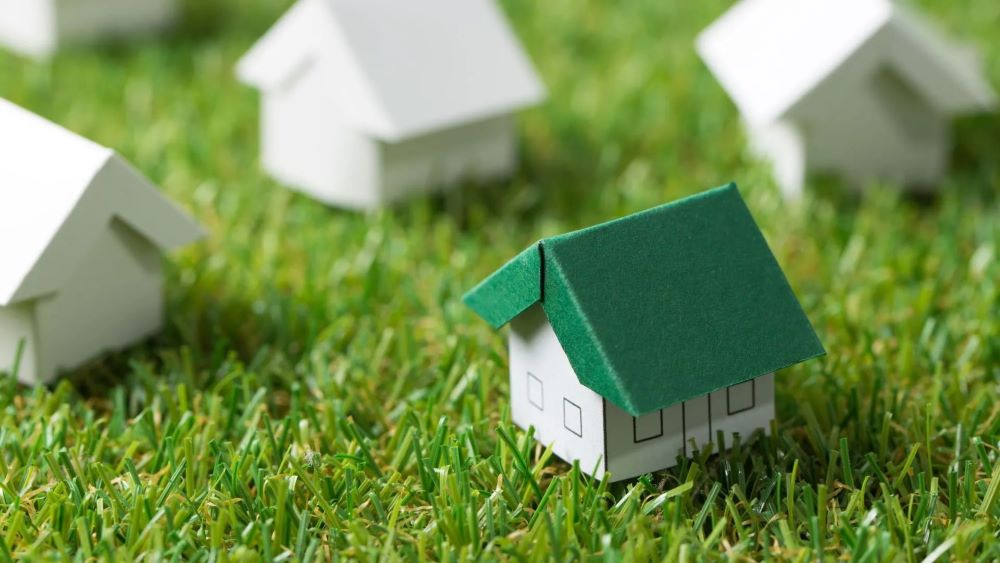Promoting Eco-Friendly Solutions: Green Property Management for Environmentally-Conscious Landlords
With the increasing global focus on sustainability and environmental consciousness, green property management has emerged as a crucial aspect of responsible landlords. As custodians of rental properties, landlords hold the key to making a significant impact on sustainable living practices. This article delves into the various strategies that landlords can adopt to promote eco-friendly initiatives in their rental properties, ensuring a greener future for both the environment and their tenants.
Energy-Efficient Upgrades for Rental Properties:
Incorporating energy-efficient upgrades in rental properties not only benefits the environment but also leads to substantial cost savings for both landlords and tenants. By integrating smart technologies such as smart thermostats, energy-efficient lighting, and automated systems, landlords can significantly reduce energy consumption. These innovative measures empower tenants to actively participate in energy conservation efforts and make informed decisions about their energy usage. Additionally, landlords can explore the integration of renewable energy sources like solar panels on the property, contributing to a cleaner and more sustainable energy supply.
Water Conservation Strategies:
Water conservation plays a pivotal role in sustainable property management. Landlords can take proactive steps by installing water-saving fixtures and appliances such as low-flow toilets, faucets, and high-efficiency washing machines. Educating tenants about the importance of water conservation and the proper use of these fixtures can lead to substantial water savings over time.
Furthermore, landlords can adopt water-wise landscaping practices, utilizing drought-resistant plants and smart irrigation systems, minimizing water wastage and preserving precious resources.
Waste Reduction and Recycling Initiatives:
Promoting waste reduction and recycling within rental properties fosters an eco-conscious community. Landlords can encourage tenants to embrace recycling by providing designated recycling bins and educating them about the importance of segregating recyclable materials. Additionally, implementing composting systems for organic waste not only reduces the environmental impact of landfill disposal but also creates nutrient-rich compost for the property's green spaces. This approach demonstrates the landlord's commitment to sustainable practices and motivates tenants to be actively involved in environmental stewardship.
Eco-Friendly Building Materials and Maintenance:
From the construction phase to day-to-day maintenance, landlords can make a substantial impact on sustainability by opting for eco-friendly building materials. Utilizing sustainable materials, such as recycled wood, low VOC (volatile organic compound) paints, and energy-efficient windows, enhances the property's environmental profile and promotes a healthier living environment for tenants. Embracing green cleaning practices and eco-friendly cleaning products further reduces the property's ecological footprint while safeguarding the health of occupants.
Promoting Sustainable Transportation Options:
Encouraging sustainable transportation options not only reduces the property's carbon footprint but also enhances its appeal to environmentally conscious tenants. Landlords can facilitate eco-friendly commuting by providing bike racks and supporting cycling as an alternative mode of transportation. Additionally, promoting the use of public transportation through incentives or providing information on nearby transit options encourages tenants to embrace greener commuting habits.
Green Certifications and Incentives:
Obtaining green certifications for rental properties, such as LEED (Leadership in Energy and Environmental Design) or ENERGY STAR, validates the property's sustainable practices and enhances its market value. These certifications demonstrate the landlord's commitment to sustainability and offer assurance to prospective tenants about the property's eco-friendly attributes.
Furthermore, landlords can explore financial incentives, tax credits, or rebates offered by local governments or utility companies to support sustainable property management initiatives.
Educating Tenants about Green Living:
Empowering tenants with knowledge about sustainable living practices is crucial to fostering a sustainable community within rental properties. Landlords can provide resources, such as eco-friendly living guides and information on local green initiatives, to help tenants make informed decisions about their lifestyle choices. Organizing workshops and events on sustainable living not only educates tenants but also creates a sense of camaraderie and shared responsibility towards the environment.
Monitoring and Measuring Sustainability Progress:
Continuous improvement in sustainable property management requires diligent monitoring and measurement of key environmental metrics. Landlords can invest in advanced monitoring systems to track energy and water usage, waste generation, and recycling rates. Analyzing this data allows landlords to set measurable sustainability goals and identify areas for improvement, ensuring a progressive approach towards greener property management.
Green property management has evolved into a fundamental responsibility for landlords seeking to make a positive impact on the environment and their communities. By implementing energy-efficient upgrades, promoting water conservation, embracing eco-friendly materials, and encouraging sustainable transportation, landlords can lead the way toward a more sustainable future.
Moreover, obtaining green certifications, educating tenants about green living, and monitoring sustainability progress exemplifies the landlord's dedication to environmentally conscious practices, fostering a harmonious and eco-friendly living environment for tenants. As the world moves towards a greener future, landlords play a pivotal role in shaping the rental property market's sustainable trajectory.


